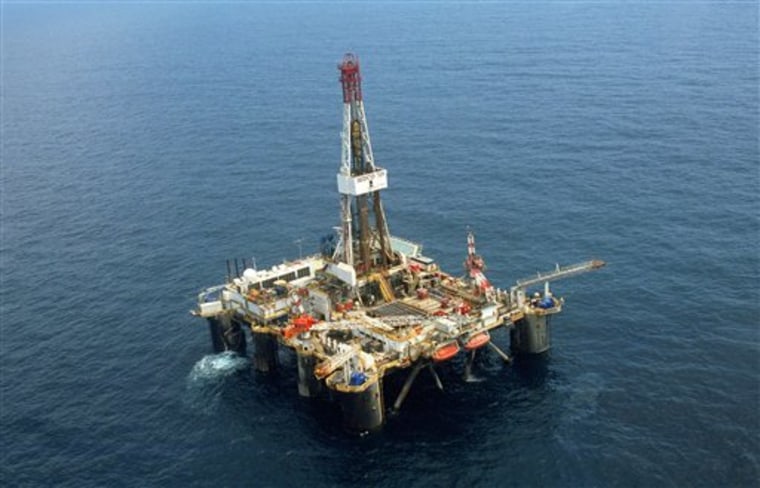An offshore oil field that produces about 200,000 barrels per day was shut down Thursday after Nigeria's most powerful militant group attacked an installation.
The group also said it captured an American worker on a supply vessel in the area of the rig.
A leader of the Movement for the Emancipation of the Niger Delta told The Associated Press that militants attacked the Bonga oil field more than 65 miles from land. But the fighters weren't able to enter a computer control room, which they had hoped to destroy.
The militant leader spoke on condition of anonymity to avoid punishment by authorities.
Olav Ljosne, a spokesman for Royal Dutch Shell, confirmed an attack, but gave no details. He said production had been stopped from the field, which normally produces about 200,000 barrels of crude per day.
That accounts for about 10 percent of Nigeria's current daily output of about 2 million barrels per day production — already significantly off the amount produced before years of militant attacks on crucial oil infrastructure.
Two seamen injured
The militants also said they kidnapped an American worker from a supply vessel they encountered while returning home from the attack. The seizure was confirmed by private security officials, speaking on condition of anonymity because they are prohibited from speaking to the media. The officials said two other seamen on board were injured in that attack.
Over 200 foreign hostages have been seized since an upsurge of violence that began in early 2006. The hostages are normally released unharmed after a ransom is paid.
Attacks against offshore facilities are exceedingly rare. Oil industry officials consider their operations on the high seas much safer than those in the creeks and swamps of Nigeria's southern Niger Delta, where most of the attacks during two years of increased violence have taken place.
Militant attacks on oil infrastructure have trimmed about a quarter of total oil production in Nigeria, which is Africa's biggest producer and a member of OPEC.
The turmoil in Nigeria's south has helped send oil prices to historical heights, giving the militants more leverage in their drive to force the federal government to send more oil industry proceeds to their areas.
Despite being the home of almost all of Nigeria's petroleum reserves, the country's south is as desperately poor as the rest of the country, which is Africa's most populous with 140 million people.
But criminality and militancy are closely linked, with many of the militant groups accused of stealing crude oil from wells and pipelines for sale in overseas market and helping politicians rig elections.
